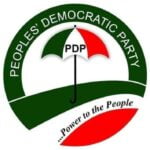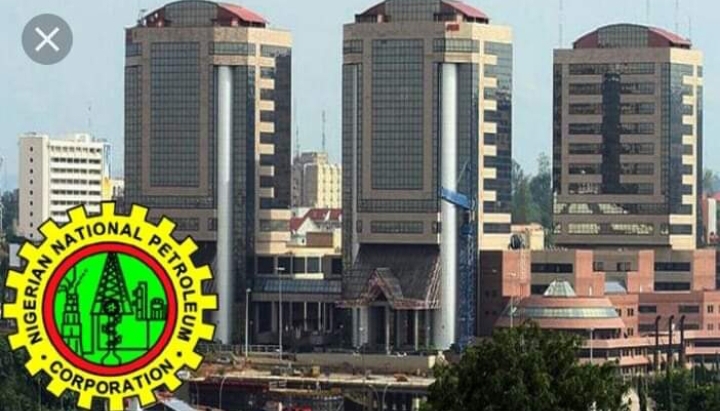NNPCL: The Entity Draining Nigeria’s Resources
By Usman bello
The Nigerian National Petroleum Corporation (NNPC), entrusted with managing Nigeria’s primary economic revenue source, remains the only government agency operating with a degree of protection and insulation from transparency and accountability.
Its operations have faced criticisms for lacking openness, leading to concerns about mismanagement, corruption, and inefficiencies. Despite the so-called Petroleum Industry reform that merely added “limited” to its name, NNPC is perceived by most Nigerians as a monster subjecting them to untold hardships with impunity.
The company controls the core of Nigeria’s economy, causing inflation and an astronomical rise in exchange rates, exacerbating daily impoverishment among Nigerians.
The esteemed 14th Emir of Kano, Muhammad Sanusi II, described NNPC as the “most opaque oil company in the world.” During a recent Bank Directors Summit, Sanusi highlighted the urgent need to stabilize the exchange rate and questioned why NNPC fails to bring in dollars. He emphasized the necessity of shedding light on NNPC’s operations, criticizing the lack of transparency in reporting oil production, sales and revenue allocation.
Despite various investigations by the House of Representatives, a forensic audit commissioned by the Federal Government through KPMG in 2014, inquiries by the Nigerian Senate and the establishment of the Presidential Committee on the Verification of Fuel Subsidy Claims, these efforts have not significantly improved governance, accountability of apex national petroleum company which may have improve average Nigerian citizen’s economic situation.
Recent developments show no signs of hope.
While President Muhammadu Buhari’s eight-year tenure in the petroleum industry intensified impunity, the current Nigerian leadership appears to be treading the same path.
President Bola Ahmed Tinubu’s recent New Year address acknowledged the negative consequences of removing petroleum subsidies on the citizens but failed to highlight specific actions to hold NNPC accountable which will renew the hope of Nigerians in the government effort to revive the economy of the country
Instead, Tinubu’s government continued with the failed palliatives distribution scheme of the last administration with hope of cushioning the harsh effect of the removal of subsidy. Unfortunately, the inherent corruption in the system has costs Minister Betta and subordinates their positions.
Various reports indicate that these aids failed to reach the intended recipients and were siphoned off by high-ranking government officials.
It’s crucial to note NNPC’s long-standing operational inefficiency. During the military era, it struggled to produce enough products, causing unnecessary queues at filling stations and hindering manufacturers from acquiring necessary fuels.
This led to purchasing petrol and diesel at exorbitant prices from the black market, resulting in inflated production costs of manufactured goods.
Moreover, in the mid2000s, instead of refurbishing its operations, NNPC opted to import refined petroleum, draining the government’s meager foreign earning, escalating raw material and essential commodity prices and exacerbating Nigeria’s economic woes.
NNPC has consistently avoided addressing crude oil and refining production issues, relying on explanations from economic organizations like the World Bank and IMF, blaming smuggling and low prices for product shortages. This allowed the entity to claim substantial spending on subsidies without clear accountability, denying the government much-needed revenue.
Inefficiency of NNPCL to manage the Petroleum Industry operations effectively can be seen glaringly in multinational companies’ divertion of their investments in the sector. One of the most recent is the Shell Petroleum’s announcement of its intention to divest from onshore exploration.
This is coming at a time government is working hard to woe new investors. Can the government succeed in attracting new foreign investors where NNPCL could not maintain the existing ones?
Another glaring failure of NNPCL is the springing up of illegal modular refineries across oil producing communities unabated.
It could be insinuated that the agitation of the oil producing communities for resources control as well as bunkering and vandalization were direct consequences of NNPCL inefficiency.
To genuinely renew hope for Nigerian citizens, Tinubu’s administration must redirect NNPCL’s focus to serve Nigerians rather than multinational economic interests.
This includes ensuring all public and private refineries operate efficiently. The government should install transparent monitoring mechanisms for crude oil and refining production, making information about production volumes and revenue generation and remittances readily available to citizens.
Instead of government borrowing money to finance sometimes low quality road projects that in some cases remain uncompleted, it should have taken loan to explore and refine petroleum that will ultimately pay back the loan and indeed provide income for the government to finance the infrastructural projects.
The present administration should see things differently from the way its predecessors do in the petroleum industry in order to renew the hope of the citizens.
The rhetoric Nigerians were recently feed with that PH refinery returning operation in December last year and the promise for other plants to follow suite this year appears to be like the commissioning of Dangote refinery which is yet to commence operation. The Port Harcourt refinery is a complex, housing two plants: the premier plant with 60,000bd capacity and the new one with 150,000bd capacity but from the available information, NNPCL was only refurbishing the premier plant which was expected to come on stream last December and there were clear information about the biggest plant in the complex.
An efficient and transparent NNPCL should be able to produce and supply enough gas to Electricity Generating companies for the production of sufficient energy for industries and domestic consumption.
When that is done many closed down manufacturing companies, those operating below capacity, new companies and SMEs are bound to return to life and operate at least at average capacity thereby provide employment, boost economic activities and ultimately reduce criminal tendencies in our youth to the barest minimum.
Where economic activities thrive, income in tax abound and government revenue will be boosted and ultimately government will be able to finance developmental projects with minimal or no borrowings.
Similarly, an efficient NNPCL should be able to generate foreign currencies that can be injected into our forex to strengthen our currency.
President Tinubu should display the political will as he did in removing subsidy to ensure the petroleum industry works for Nigeria particularly the NNPCL and indeed Private refineries.
Usman Bello is a Public Relations Practitioner and can reached via ubameen.ub@gmail.com










